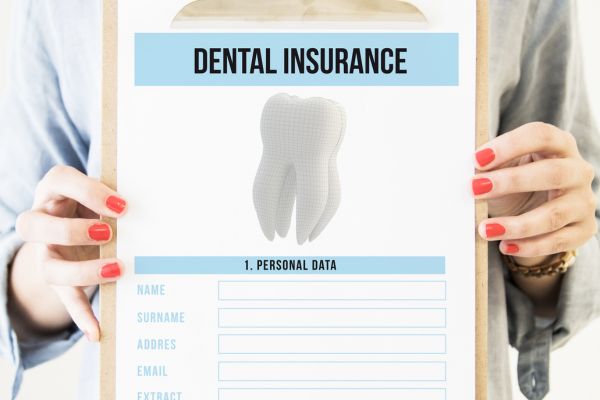Here are 6 tips to help choose the best health insurance plan
This fall, if you are purchasing health insurance that is not tied to your job, you have good news. The open enrollment period for HealthCare.gov begins this week. After years of cuts and, some would argue, sabotage to the Affordable Care Act under the Trump administration. There will be more time for you to sign up and health insurance plan more help you can get when choosing a plan. You’ll also have a better chance of being eligible for subsidies to lower the cost of a plan purchased through the ACA marketplace.
Even if your employer offers a plan, choosing health insurance can be difficult. The process is complicated and requires you to be thoughtful about your finances and health. You have to do it all within a time limit, which can often be a few weeks.
There are many options available to you, whether you’re moving out of your parent’s plan and choosing one for yourself, or if you’re unhappy with the plan you have and are looking for a new plan, or if you’re currently uninsured and need to know if there are any other options. A few questions can help narrow down the best plan among all the options.
Tip #1: Be aware of where you are going
It can be difficult to know where to find health insurance. Sabrina Corlette co-directs Georgetown University’s Center on Health Insurance Reform.
Medicare is available to anyone 65 years of age and older. This federally-run program pays for a lot of your health care. If you have certain disabilities, you might be eligible. Open enrollment for those who are already enrolled in Medicare, or in a Medicare Advantage program, is Dec. 7, 2018. This year’s open enrollment period allows you to change your prescription drug and supplemental plans for 2022.
Corlette states that for those younger than 65, the vast majority of people get their coverage through their employer. Most employers will pay between 70% and 90% of the premium costs. This is quite nice. Talk to your supervisor or the human resources department of your company to learn about any plans that may be available for you.
Medicaid is the low-income health insurance program that covers nearly one quarter of Americans. The federal and state governments fund it, but each state runs it. So, depending on where you live, whether or not you are eligible for it, you may be eligible.
Tip #2: Are you overwhelmed by all the choices? Tip #2: Don’t be overwhelmed by the options. Think about what is predictable about your health to help you make a decision.
The choice is easy if you are healthy enough to choose from one or two plans through your job. It might be worth asking your coworkers about their favorite benefits, signing up online through an online portal and calling it quits.
The Affordable Care Act marketplaces can seem overwhelming to shoppers. Aaron DeLaO, Director of Health Initiatives at Foundation Communities, says that there were 76 plans available in Austin.
DeLaO says that even though there are many options, it is possible to narrow down the choices by asking a few basic questions. Ask yourself the following questions: “Do I want insurance to cover a catastrophic event? Or do you already know that I have a medical issue that will require ongoing care?”
You can sometimes enter your medication or doctor’s names online while searching for plans to filter out those that don’t cover them. Call the insurance company to ask if your provider is in-network for the plan you are considering. Is my medication on the plan’s Formulary (the list that an insurance company will cover)?
Tip #3: Find out what some of the obscure terms in your health insurance policy mean
What is your monthly budget for health insurance? To compare the true cost of different health plans and determine which one is best for you, it’s important to be familiar with some insurance terms, such as premium, cost-sharing and copay.
These types of charges are used by insurance companies to manage their costs. The monthly premium for a plan might be lower than the basic plan that they sell, making it appear more affordable. The same plan may have a $6,000 deductible, meaning that you will have to spend $6,000 from your own pocket each year on health services before your insurance starts to cover the rest. You would be betting that you won’t need a lot of healthcare services and you wouldn’t have worry about paying your premiums and the cost of a few visits.
You might choose to have the premium increased if you have a chronic condition or are more cautious about taking on risk. While you will pay more for this plan than the other, your monthly costs will be less predictable as there is a higher deductible and lower coinsurance rates. This allows you to go to many appointments, pick up lots of prescriptions, and still keep your monthly expenses manageable.
The availability of affordable plans for you will depend on where you live, what your income is and who you have in your home. Congress approved temporary funding to help with the pandemic. Depending on your income, you might be eligible for plans that have premiums as low as $10 per month on HealthCare.gov and/or your state’s ACA insurance exchange.
Tip #4: Free professional advice from a trusted source
Are you still overwhelmed by all the ACA options? You are in luck. You can get impartial, free professional assistance to help you select and enroll in a plan. Just put in your zip code at Healthcare.gov/localhelp and look for an “assister” a person also referred to as a health care navigator on some state websites.”
Aaron DeLaO, one of these navigators, notes that he and his co-guides don’t work on commission — the government pays them. He says, “We are not contracted with any insurance agencies.” “We do it entirely autonomously and impartially. It’s all about the best interest of the customer.
The number of navigators was quadrupled by the Biden administration in 2021 ahead of open enrollment. The Trump administration had severely reduced funding for the program.
Corlette says that insurance brokers can also be very helpful. She says that although brokers do receive commissions, she has found that good brokers are more interested in repeat customers. She advises that you look at Healthcare.gov and your state insurance department to find a licensed broker.
Tip #5 – Beware of too-good-to be true plans sold online
It can be scary to surf the internet. Corlette warns people to not enter their contact information on health insurance interest forms on random sites or click on insurance ads online!
Although they may seem attractive because they are often cheap, they could also be very short-term plans that do not cover essentials like annual checkups or prescription drugs. Experts warn that this plan is not the best deal.
Corlette says that con artists are out there trying to take advantage of people’s recognition that health insurance is something they should have. Corlette tells people to go straight to Healthcare.gov. You can access that portal regardless of where you live. Any plan that you find will provide coverage for the ACA’s essential 10 benefits, such as hospital and preventive care.
Tip #6: Know your deadlines
You usually only have a few weeks to sign up in the fall. The sign-up period for HealthCare.gov Marketplace plans, which go into effect January 2022, starts November 1, 2021, and ends Jan. 15, 2022. The deadlines for signing up for a Medicare plan or employer-sponsored plan will be different. However, they will likely also be in the fall. You can sign up for Medicaid at any time during the year.
DeLaO, the navigator for health, said that even if your plan seems good and you want it to automatically renew, it is always a good idea annually to check out what other options are available.
“Are there additional subsidies that could lower your monthly premium?” He says. Is there a plan where you can get a silver plan instead of a bronze plan? This lowers your deductible and your copayments.
He says that it doesn’t take a lot of time to find the right plan for your needs. His team strives to have people enrolled in plans within an hour and half. Customers can also get help via phone, and often can sign up online.
Related Articles:
https://www.giveinsurance.co.uk/buy-health-insurance
https://www.provideinsurance.us/best-health-insurance-plan
https://www.dailyinsurancestudy.com/choose-health-insurance
https://www.helpsinsurance.com/health-insurance-after-a-job
https://www.rightsinsurance.com/self-employed-in-health-insurance
https://www.askinginsurance.com/best-health-insurance-for-your-family
https://www.discussinginsurance.com/health-insurance
https://www.accordingtoinsurance.com/international-health-insurance


